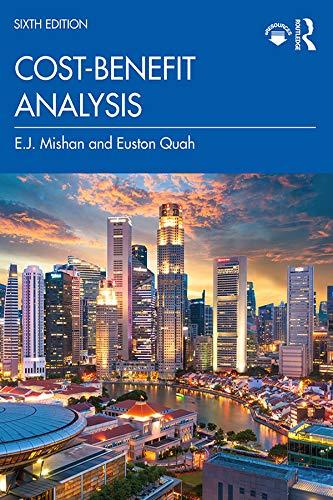Answered step by step
Verified Expert Solution
Question
1 Approved Answer
24. Tax Rates [LO3] Refer to the corporate marginal tax rate information in Table 2.3. a. Why do you think the marginal tax rate jumps

24. Tax Rates [LO3] Refer to the corporate marginal tax rate information in Table 2.3. a. Why do you think the marginal tax rate jumps up from 34 percent to 39 percent at a taxable income of $100,001, and then falls back to a 34 percent marginal rate at a taxable income of $335,001? b. Compute the average tax rate for a corporation with exactly $335,001 in taxable income. Does this confirm your explanation in part (a)? What is the average tax rate for a corporation with exactly $18,333,334? Is the same thing happening here? c. The 39 percent and 38 percent tax rates both represent what is called a tax "bubble." Suppose the government wanted to lower the upper threshold of the 39 percent marginal tax bracket from $335,000 to $200,000. What would the new 39 percent bubble rate have to be? Use the following information for Taco Swell, Inc., for Problems 25 and 26 (assume the tax rate is 34 percent): Sales Depreciation Cost of goods sold Other expenses Interest Cash Accounts receivable Short-term notes payable Long-term debt Net fixed assets Accounts payable Inventory Dividends 2008 $ 7.233 1,038 2,487 591 485 3.792 5,021 732 12,700 31.805 3,984 8,927 882 2009 $ 8,085 1,085 2,942 515 579 4,041 5,892 717 15,435 33,921 4,025 9,555 1,011 24. Tax Rates [LO3] Refer to the corporate marginal tax rate information in Table 2.3. a. Why do you think the marginal tax rate jumps up from 34 percent to 39 percent at a taxable income of $100,001, and then falls back to a 34 percent marginal rate at a taxable income of $335,001? b. Compute the average tax rate for a corporation with exactly $335,001 in taxable income. Does this confirm your explanation in part (a)? What is the average tax rate for a corporation with exactly $18,333,334? Is the same thing happening here? c. The 39 percent and 38 percent tax rates both represent what is called a tax "bubble." Suppose the government wanted to lower the upper threshold of the 39 percent marginal tax bracket from $335,000 to $200,000. What would the new 39 percent bubble rate have to be? Use the following information for Taco Swell, Inc., for Problems 25 and 26 (assume the tax rate is 34 percent): Sales Depreciation Cost of goods sold Other expenses Interest Cash Accounts receivable Short-term notes payable Long-term debt Net fixed assets Accounts payable Inventory Dividends 2008 $ 7.233 1,038 2,487 591 485 3.792 5,021 732 12,700 31.805 3,984 8,927 882 2009 $ 8,085 1,085 2,942 515 579 4,041 5,892 717 15,435 33,921 4,025 9,555 1,011
Step by Step Solution
There are 3 Steps involved in it
Step: 1

Get Instant Access to Expert-Tailored Solutions
See step-by-step solutions with expert insights and AI powered tools for academic success
Step: 2

Step: 3

Ace Your Homework with AI
Get the answers you need in no time with our AI-driven, step-by-step assistance
Get Started


